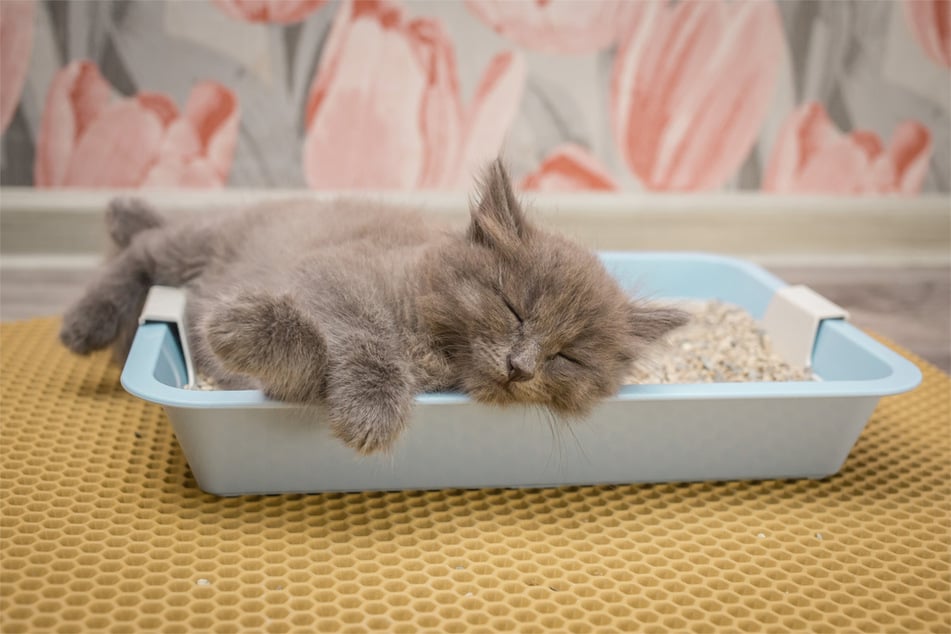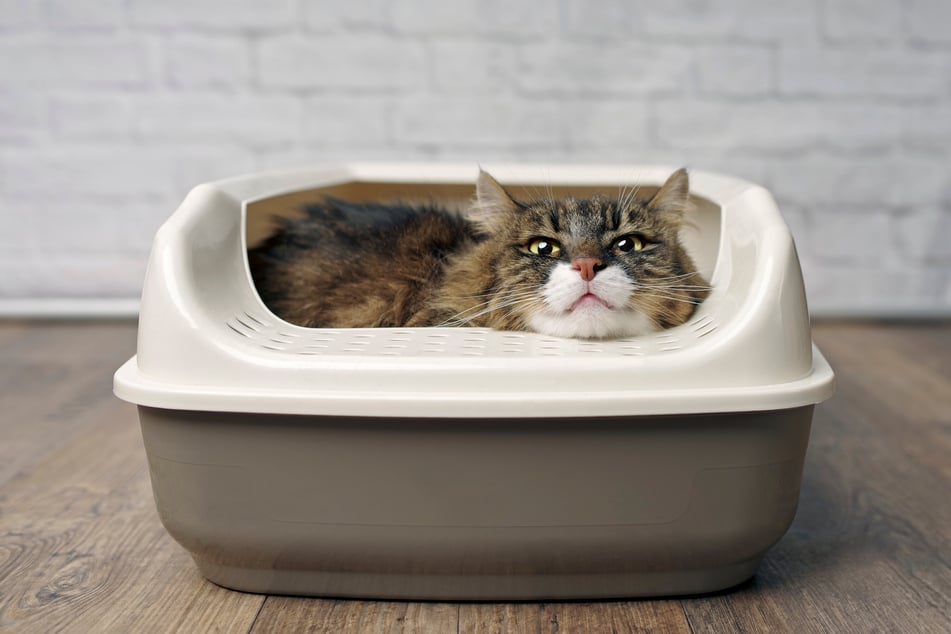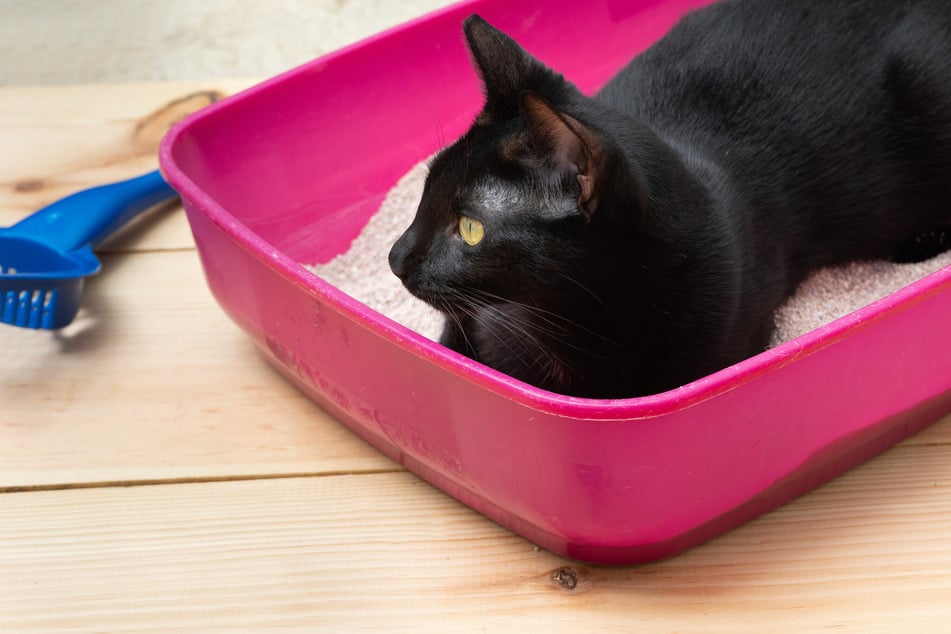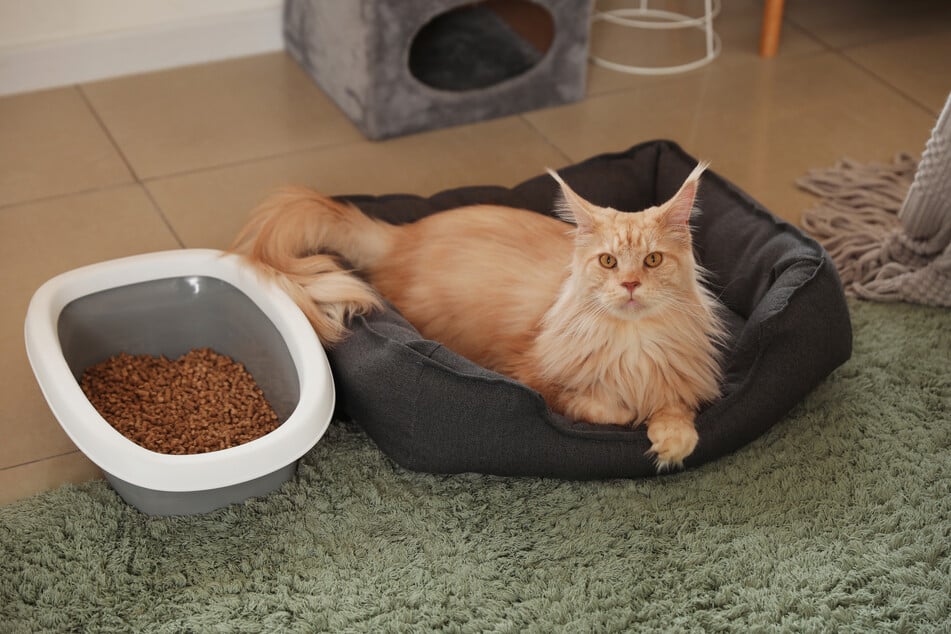Why is my cat sleeping in the litter box?
Cats sometimes choose unusual places to sleep – this is completely normal! But your cat often sleeps inside its own litter box, it might be worth looking into.

A cat suddenly choosing to snooze in its own toilet can be confusing for pet owners.
And it's with good reason! Remember, our feline friends' behavior is often a reaction to their environment.
If you have a kitty, you may have noticed that they often react to change, stress, or discomfort with some pretty weird behavior.
Sleeping in the litter box can indicate psychological and health problems in cats that need to be recognized.
Our handy guide will outline a few possible explanations – and solutions!
Reasons why cats sleep in litter boxes
A cat suddenly and persistently choosing to curl up in its own litter box is cause for investigation. Here are some possible reasons for this behavior.
Stress
Cats can be very sensitive to stress: a move, the noise of a building site, a new human or animal family member, or a loss can cause a lot of stress.
As the litter box is a safe and familiar place for many cats, they may sleep in it for comfort. In stressful situations, the litter box is sometimes the only thing the cat knows and feels safe in.
Your furry friend may be looking for security.
Fear
If a cat is frightened, it may retreat to its litter box to hide, as it has not usually had any negative experiences there, and the familiar smell gives it an additional sense of security.
The cause of fear should be identified so that it does not develop into an anxiety disorder or behavioral problems.

Illness
Cats may also retreat to their litter box when they are in pain or have health problems.
Issues like high blood pressure, arthritis, rabies, cystitis, dental problems, kidney failure, intestinal obstruction, bone problems, dementia, or cancer can cause a cat to sleep in the litter box.
Unusual symptoms in cats that could suggest a health issue include:
- apathy
- excessive licking or biting
- altered meowing or purring
- unusual posture
- aggression
- loss of appetite
- no or hardly any bowel movements
- poor grooming
- disorientation
If you think your pet may have health problems, don't hesitate to contact your vet!

Bullying in a multi-cat household
Not all cats get along, and in multi-cat households, one poor individual may lose out.
You can also tell whether a cat is being ostracized and bullied by the others by looking at the litter box. It's possible that the "victim" no longer dares to leave the litter box out of fear, or feels that its own litter box is the only safe place that belongs only to it.
The "bully" can also be found sleeping in the litter box, to stop other cats from using it.
If you think your cats don't get along, you can take advantage of behavioral therapy for cats or seek advice from a vet.
Lack of alternative places to sleep
If you notice a cat sleeping in the litter box, you should ask yourself whether there is a lack of alternative places to sleep and retreat to.
Cats like places that are quiet, warm, and safe. They also like places to sleep from where they can observe family life from a safe distance. There should also be spots reserved just for your feline friend.
If you want to get a cat out of the habit of sleeping in the litter box, you can set up cozy alternatives for sleeping near the litter box.

Why is my outdoor cat sleeping in the litter box?
Outdoor cats have many adventures during the day in the hectic and exciting outside world. When they come home, they usually look for a quiet and safe place to sleep. For some cats, this place is the litter box.
If you see an outdoor kitty sleeping in the litter box, you should consider whether the cat has too few other convenient places to sleep.
Sleeping in the litter box can also indicate pain or illness in outdoor cats. Observe your cat closely and have it examined by a vet if necessary.
Conclusion: Why does your cat sleep in the litter box?
If a cat sleeps in the litter box, your first port of call should be asking whether it's fully comfortable with its environment.
Whenever in doubt – and especially if you suspect more serious issues are at play – contact your vet!
Cover photo: 123RF/dikovame
